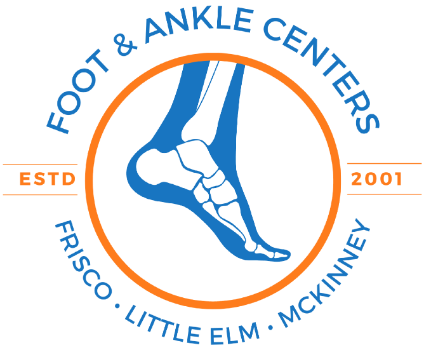Professional Help To Treat Warts Found On Your Feet
Warts can turn into painful infections that cause throbbing discomfort with each step you take. If you start noticing small growths developing on the weight-bearing areas of your feet, schedule an evaluation with our expert podiatry team at Foot & Ankle Centers of Frisco, Little Elm, & McKinney. With three locations in Frisco, Little Elm, and McKinney, Texas, we can help treat your warts before they spread.

Our Expert Podiatrists Can Treat Any Foot Warts
Common Warts are the most typical type of foot wart. They are usually small, firm bumps with a rough grainy surface and can appear anywhere on the foot, but are most found on the toes and balls of the feet. They can range in size from a few millimeters to several centimeters. Common warts are usually skin-colored but can sometimes have a yellow hue.
Plantar Warts are similar to common warts, but they are found on the soles of the feet. They can be painful, especially when pressure is applied to them when walking or standing. They usually have a black dot in the center and are surrounded by calloused skin. Plantar warts can be very difficult to treat, and may require multiple treatments with prescription medications or even surgery.
Filiform Warts are long, thin warts that tend to grow on the top of the feet or around the ankles. They are usually skin-colored, but can sometimes have a yellowish hue. They may have small, finger-like projections that make them look like small strands of hair.
Flat Warts are small, flat bumps that tend to grow in clusters. They are usually skin-colored, but can sometimes be slightly brownish or yellowish. They are most commonly found on the toes and soles of the feet.
Periungual Warts are warts that grow around the nails. They can cause pain, discomfort, and difficulty in trimming the toenails. These warts can be difficult to treat, and may require multiple treatments with prescription medications or even surgery.
Mosaic Warts are clusters of several smaller warts that are usually found on the soles of the feet. They are usually yellowish-brown in color and have a rough, grainy surface. These warts can be difficult to treat and may require multiple treatments with prescription medications or even surgery.
Some warts can even lead to foot numbness, tingling, or decreased sensation. Before your warts get any worse or cause severe pain, schedule an evaluation at Foot & Ankle Centers of Frisco, Little Elm, & McKinney to get started on treatment.

